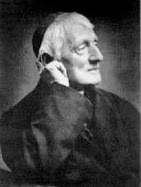Yesterday--April 7--was the fifth anniversary of the day my husband and I were received into the Catholic Church, at the Great Easter Vigil, the same date as the Great Easter Vigil this year. One of the terms most commonly used to describe those who embrace the Catholic faith, even after many years as a Christian, is "convert." It is perhaps not the best word to use, because it requires some explanation in order not to offend someone who considers himself "already converted." The best explanation, I think, is that conversion is not, after all, a one-time event but a life-long process. In other words, failure to live up to what one believes--to take two steps forward and one back--is not a sign that one's original conversion wasn't genuine; it is a reason to seek God's mercy all the more ardently. Having received the grace of forgiveness through the Sacrament of Penance, we are able, in the words of the author of Hebrews, to "run with perseverance the race that is set before us;" in other words, to pursue holiness. The possibility of confessing our sins and having someone absolve us of them is, in fact, one of the greatest gifts of the Catholic Church. It was the reason that G.K. Chesterton gave for becoming Catholic--"to get rid of my sins." Of course Chesterton was first converted from atheism to Christianity, which is why his writing resonates with anyone who has experienced real conversion.
In celebration of our Lord's Resurrection, in observance of our anniversary, and in honor of my fellow "convert," GKC, here is his poem of that title:
THE CONVERT
G.K. Chesterton
And the whole world turned over and came upright,
And I came out where the old road shone white,
I walked the ways and heard what all men said,
Forests of tongues, like autumn leaves unshed,
Being not unlovable but strange and light;
Old riddles and new creeds, not in despite
But softly, as men smile about the dead.
The sages have a hundred maps to give
That trace their crawling cosmos like a tree,
They rattle reason out through many a sieve
That stores the sand and lets the gold go free:
And all these things are less than dust to me
Because my name is Lazarus and I live.




